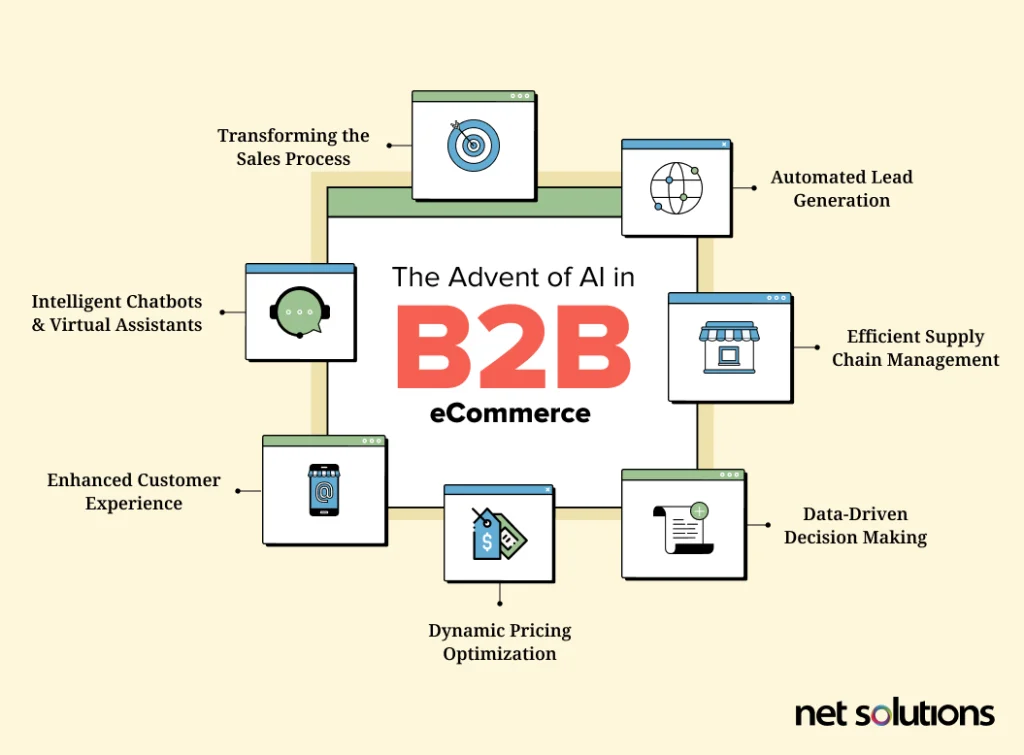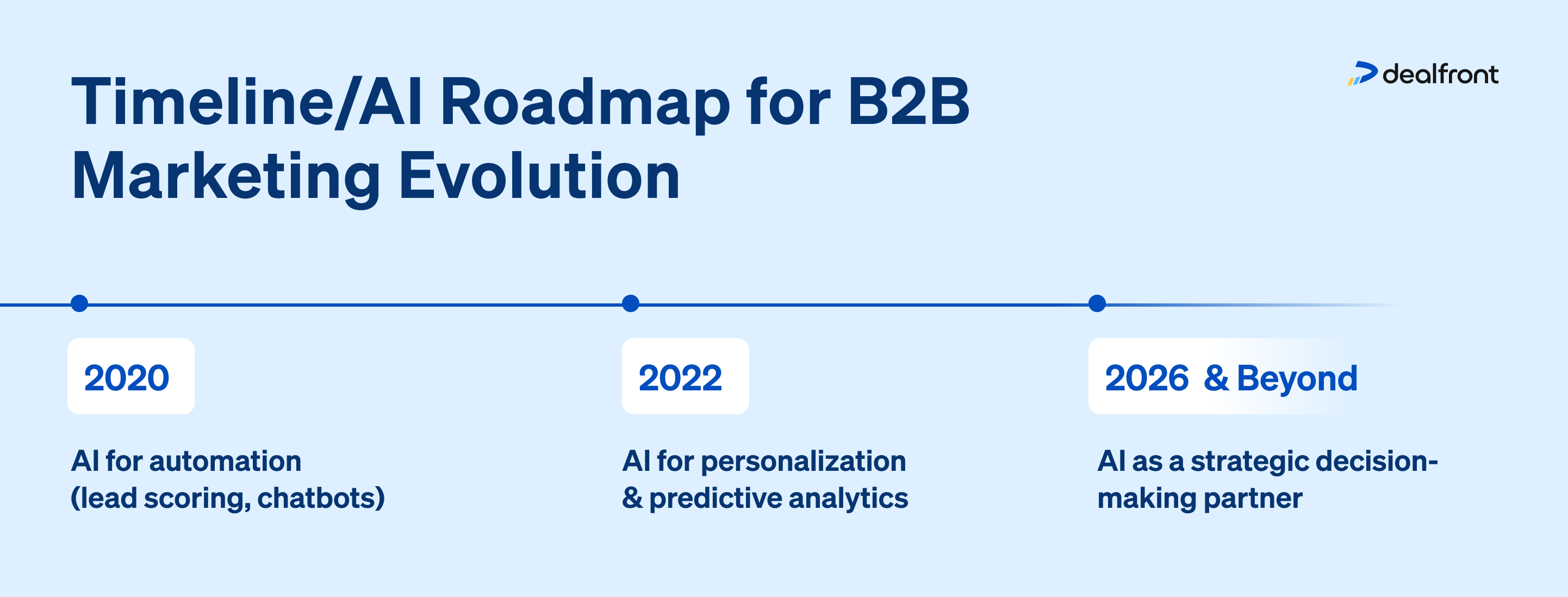Open Effectiveness and Growth With AI Automation for B2B Business
AI automation is transforming the landscape for B2B companies. It enhances procedures and minimizes dependence on human treatment. This shift allows services to make quicker, data-driven decisions. As organizations explore which refines to automate, they have to additionally think about the right tools to implement. However, difficulties stay in embracing AI technology. Minarik AI. The implications of these adjustments might shape the future of several business in means yet to be completely understood
Recognizing AI Automation in the B2B Context
As services progressively seek performance, comprehending AI automation in the B2B context ends up being important. AI automation involves using sophisticated technologies to enhance operations, lower human intervention, and boost decision-making procedures. In the B2B landscape, this can manifest in numerous types, such as automating client service communications, taking care of supply chain logistics, or maximizing advertising and marketing projects. Firms can leverage AI to examine enormous datasets swiftly, enabling them to determine trends and insights that inform critical selections. In addition, AI systems can integrate perfectly with existing innovations, providing a cohesive system for taking care of business functions. This understanding prepares for companies to discover how AI can change their procedures, boost productivity, and eventually foster lasting development in an affordable market.
Key Benefits of Applying AI Automation

Recognizing Processes Appropriate for Automation

Choosing the Right AI Equipment for Your Service
When B2B business consider automating their procedures, choosing the ideal AI tools ends up being vital for accomplishing desired results. Companies need to start by evaluating their one-of-a-kind requirements and objectives, making certain placement with service goals (Minarik AI). Examining the scalability, combination, and flexibility abilities of possible tools is crucial, as these variables establish long-term effectiveness. Organizations should additionally think about user-friendliness and the degree of support given by suppliers, as these components can influence successful application. Additionally, examining consumer testimonials and case studies can supply understandings right into just how certain AI services carry out in real-world situations. By thoroughly picking AI devices that fit their functional needs, B2B firms can boost performance and drive development while decreasing prospective disturbances
Getting Rid Of Difficulties in AI Fostering
B2B companies usually come across considerable challenges in adopting AI innovations, specifically issues associated with data top quality and resistance to transform monitoring. Poor information top quality can impede the efficiency of AI systems, while worker unwillingness to accept new procedures can stall implementation initiatives - Growth Systems For B2B. Resolving these difficulties is necessary for effective AI combination and optimizing its prospective advantages
Information Top Quality Issues
Assuring high information quality is essential for the successful adoption of AI modern technologies in business-to-business environments. Unreliable, incomplete, or outdated data can seriously hinder AI initiatives, resulting in erroneous understandings and bad decision-making. Companies frequently deal with challenges such as information silos, incongruities across different sources, and a lack of standard data styles. To overcome these problems, companies must invest in data cleaning, combination, and administration procedures. Executing durable data monitoring methods assures that the information fed into AI systems is pertinent and reliable. Additionally, fostering a culture of information high quality recognition amongst workers can enhance data accuracy gradually. By attending to information quality issues, B2B companies can release the full capacity of AI automation, driving efficiency and development.
Adjustment Management Resistance

Measuring the Effect of AI Automation
Gauging the effect of AI automation in B2B firms calls for a clear understanding of key performance signs (KPIs) that line up with service objectives. Efficient information evaluation techniques are essential for analyzing the results, while durable ROI evaluation methods assist determine the financial advantages of automation initiatives. Together, these elements provide a substantial structure for evaluating AI's contributions to organizational success.
Trick Performance Indicators
Secret performance indications (KPIs) serve as important devices for B2B companies to examine the effectiveness of AI automation campaigns. By developing clear metrics, companies can determine enhancements in operational effectiveness, price reduction, and profits growth straight attributable to automation. Typical KPIs consist of cycle time decrease, error rates, consumer fulfillment ratings, and employee performance levels. These signs supply understandings right into exactly how AI systems are maximizing procedures and improving general efficiency. In addition, tracking KPIs makes it possible for companies to determine areas for further enhancement and to line up AI automation efforts with strategic service objectives. Eventually, a distinct framework of KPIs assurances that B2B business can quantitatively review the effect of AI automation on their procedures and drive continuous development.
Information Evaluation Strategies
Efficient information evaluation strategies play an essential duty in assessing the impact of AI automation within B2B companies. By using statistical techniques, organizations can recognize patterns and patterns in functional information, allowing them to examine the performance obtains attained with automation. Techniques such as regression analysis and time series projecting offer understandings into exactly how AI-driven processes influence efficiency and decision-making. Additionally, data visualization tools can effectively interact findings to stakeholders, assisting in informed calculated decisions. Maker learning algorithms can further enhance evaluation by predicting future end results based upon historical data, using workable insights. Eventually, these techniques enable B2B firms to gauge success and optimize their AI automation initiatives, ensuring placement with organization purposes and improving overall performance.
ROI Evaluation Methods
Reviewing the return on investment (ROI) of AI automation is essential for B2B companies looking for to recognize the monetary effects of their technological campaigns. Firms can employ numerous ROI analysis methods to evaluate the performance of AI executions - AI Automation For B2B. One effective approach entails determining cost savings by comparing operational expenditures prior to and after automation (Minarik AI). Furthermore, gauging productivity renovations through essential efficiency indicators (KPIs) assists measure the advantages of AI. Customer complete satisfaction metrics can likewise offer insights into the impact of automation on solution top quality. To guarantee a comprehensive analysis, business must take into consideration both straight monetary returns and abstract benefits, such as enhanced decision-making abilities and affordable advantage. This multifaceted evaluation allows B2B business to make educated decisions relating to future financial investments in AI modern technology
Future Patterns in AI Automation for B2B Companies
What innovations lie ahead for AI automation in B2B business? Arising patterns suggest a considerable shift in the direction of boosted information analytics capabilities, making it possible for businesses to make more informed decisions. Predictive analytics will certainly end up being increasingly necessary, permitting firms to anticipate market changes and client demands. Additionally, the combination of AI with Web of Points (IoT) innovation is anticipated to streamline operations by offering real-time understandings and automation of processes. Firms will also concentrate on enhancing customer experiences with individualized advertising and marketing driven by AI algorithms. In addition, innovations in all-natural language handling will assist in much better interaction in between organizations and customers. As these fads develop, B2B companies must adjust to utilize AI automation efficiently, guaranteeing continual growth and competitive benefit.
Often Asked Inquiries
What Industries Advantage one of the most From AI Automation in B2B?
Manufacturing, financing, healthcare, and logistics markets benefit the most from AI automation in B2B. These fields take advantage of AI to enhance processes, enhance decision-making, and boost general functional efficiency, driving considerable development and advancement.
How Does AI Automation Impact Employee Responsibilities and Responsibilities?
AI automation reshapes employee roles and obligations by simplifying repeated jobs, enabling workers to concentrate on strategic efforts. This shift fosters skill advancement, enhances performance, and encourages collaboration, ultimately driving organizational development and innovation.
What Prevail Misconceptions Concerning AI Automation in B2B?
Common misconceptions concerning AI automation in B2B consist of anxieties of task loss, beliefs that AI can fully replace human judgment, and undervaluing the relevance of collaboration between AI systems and workers for excellent outcomes.
How Can Businesses Make Sure Data Personal Privacy With AI Automation?
Organizations can guarantee data privacy with AI automation by applying robust security methods, sticking to regulative compliance, carrying out regular audits, and training workers on information taking care of techniques to alleviate risks and safeguard sensitive details.
What Are the Expenses Connected With Applying AI Automation?
The prices related to carrying out AI automation consist of software application acquisition, infrastructure upgrades, training employees, continuous maintenance, and potential downtime during assimilation. In addition, firms might sustain expenditures connected to data security and conformity measures.
Measuring the impact of AI automation in B2B companies requires a clear understanding of vital performance indications (KPIs) that line up with service goals. Key performance indicators (KPIs) offer as necessary tools for B2B business to evaluate the efficiency of AI automation initiatives. Effective information evaluation methods play a necessary duty in assessing the influence of AI automation within B2B firms. Evaluating the return on financial investment (ROI) of AI automation is vital for B2B business looking for to understand the monetary ramifications of their technical campaigns. What advancements lie in advance for AI automation in B2B firms?